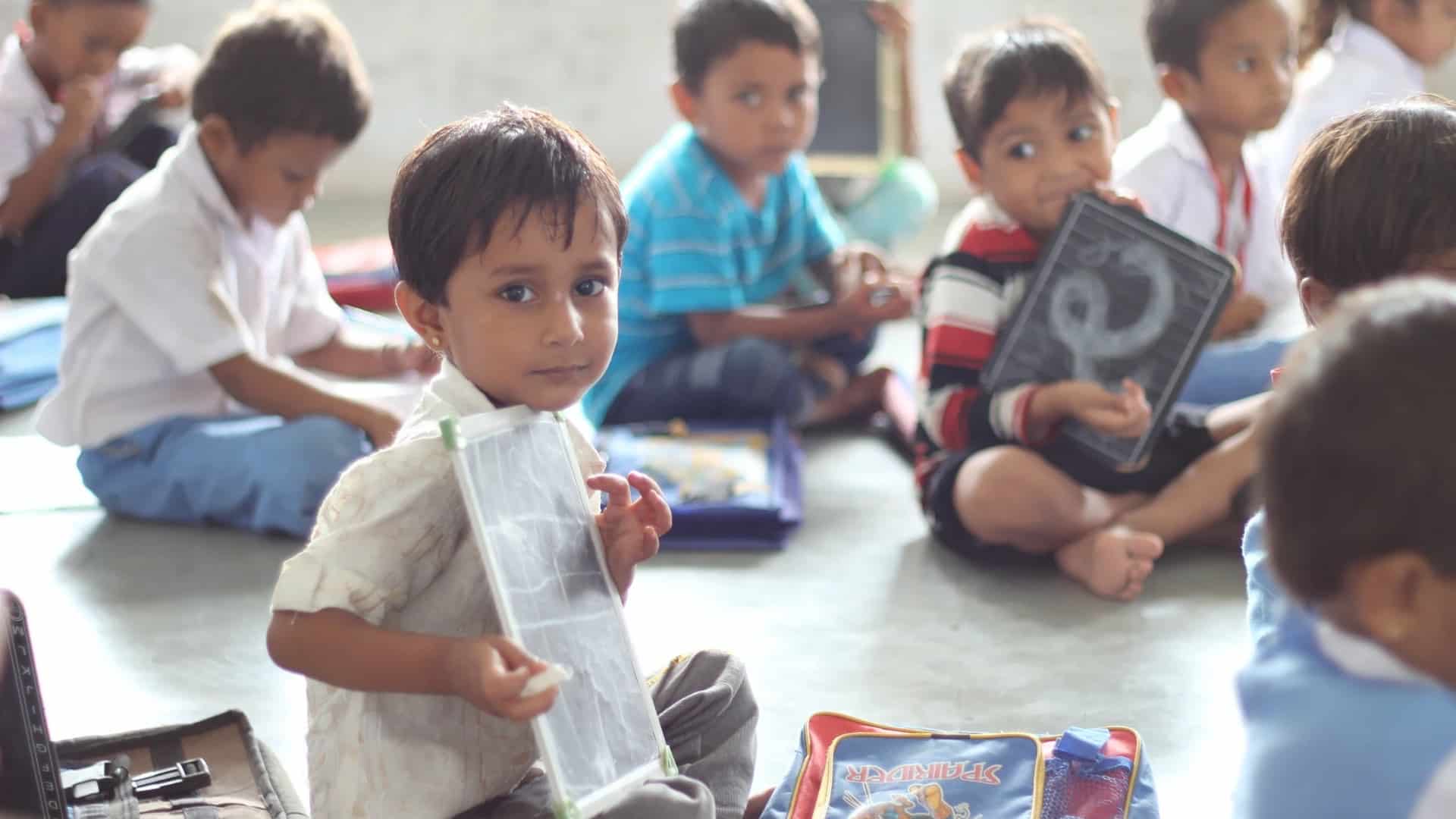
Building Futures Through Foundational Literacy and Numeracy
This blog highlights the urgent need to strengthen Foundational Literacy and Numeracy (FLN) as a critical pillar for lifelong learning, national development, and equitable education. It examines global and Indian contexts, policy responses like NIPUN Bharat, and grassroots interventions by Dr. Reddy’s Foundation to improve FLN outcomes in government schools.
The lack of strong foundational literacy and numeracy (FLN) skills among individuals has become a critical global issue. It exists not only in low-income or developing nations but also in high-income or developed countries.
The latest ‘Survey of Adult Skills’ report reveals that on, average, 18% of adults across OECD countries do not meet the basic levels of proficiency in literacy, numeracy and adaptive problem- solving. Another concerning data point is that around 20% of individuals aged 16-65 demonstrate math and reading skills no higher than what would be expected of students who completed primary level of schooling.
Looking at the global data of a recent World Bank report highlights that 70% of 10-year-olds are unable to read and understand a simple text. Additionally, a UNICEF study across 32 low and middle-income countries showed that only 30% of Grade 3 students have acquired foundational literacy, while just 18% possess basic numeracy skills. These disparities are further pronounced for children with disabilities, those from low-income backgrounds, and those out of school. Furthermore, the 2024 UNESCO report emphasizes that without urgent action, 37% of the world’s children (300 million) will be unable to achieve minimum reading proficiency by 2030.
Why Foundational Literacy and Numeracy Skills Matter Beyond School
FLN skills act as a base for meaningful learning in higher grades and foster 21st-century skills such as problem-solving and critical thinking. Children who fail to acquire the fundamental FLN skills face difficulties in catching up and might drop out of school. (CBSE Academics) It also impacts their acquisition of advanced skills and influences their grasp of concepts across subjects (APU 2021).
The damage is even greater for children who study in a language (e.g. English) they do not speak or understand. Children studying an unfamiliar language face a ‘double learning disadvantage’ because they must try to learn a new language while absorbing concepts from other subjects.
The absence of a strong educational foundation hinders children’s success in their academic journey and professional endeavors. They fail to develop the competencies required to contribute to the economy and become active participants in society. (World Bank 2019) It also leads to greater youth unemployment, increasing poverty and impacts the productivity levels of a nation (UNICEF 2024).Therefore, foundational learning acts as a building block for a child’s future learning and growth.
India’s Progress and Challenges
From 2018-22 (Table 1), there was a further decline in the already low reading and arithmetic abilities in India, primarily due to the pandemic-enforced school closure. Notably, the decline in reading abilities was steeper than arithmetic abilities. When we look at the latest data in the ASER 2024 report, there has been a recovery in reading, however, the current reading levels are still lower than 2018. On the other hand, in arithmetic, there has not only been a rise from the post-pandemic levels but also an improvement from the 2018 levels. An important point to note is that the majority of the improvement in both reading and arithmetic was primarily driven by government schools.
Table 1: Foundational Literacy and Numeracy Status in India (2018-24)

Data Source: ASER 2024 Global
Globally there has been an increasing emphasis on FLN skills. The World Bank introduced the concept of ‘learning poverty’ in its 2019 report. Learning poverty is defined as ‘being unable to read and understand a simple text by age 10’. This report is crucial as it aligned countries to strive towards one standard indicator. It also discussed how, contrary to the general notion, dynamic changes in technology or society will further increase the importance of strong foundational skills.
In 2022, the World Bank published an update report highlighting the amplified learning crisis post-pandemic. The report recommended ‘political commitment at the national level’ as the immediate step towards learning recovery and acceleration. It also emphasized introducing structural reforms across countries to strengthen the education systems in the long run.
Additionally, it proposed the RAPID framework (Figure 1), which can applied by countries based on their contexts.

Figure 1: RAPID Framework Source: World Bank 2022
In September 2023, UNICEF and Hempel Foundation launched the Foundational Learning Action Tracker (FLAT) to monitor the progress of low and middle-income countries in implementing the RAPID framework for foundational learning. The knowledge and measures shared in the above reports have created an enabling environment for accelerating the work on FLN skills.
The NIPUN Bharat Mission and Its Role in Foundational Literacy and Numeracy
To achieve universal FLN at the primary level, as per the vision of the National Education Policy (NEP) 2020, a mission ‘National Initiative for Proficiency in Reading with Understanding and Numeracy (NIPUN BHARAT)’, was launched by the Govt. of India on July 5th, 2021. This mission aims to ensure that every child attains FLN at the end of grade 3 and not later than grade 5 by 2026-27. It concentrates on five main areas: (a) ensuring access and retention of children in foundational years of schooling, (b) teacher capacity building, (c) creating high-quality learning resources for both children and teachers, (d) tracking children’s learning outcomes, and (e)addressing children’s health and nutrition needs, including mental well-being. (MOE Annual Report 2021-22)
The data from ASER 2024 shows that 83% of schools had received a directive to implement FLN activities from the government, and at least one teacher had been trained on FLN in 78% of these schools. Additionally, 75% of them were provided with or received funds to purchase teaching learning material for FLN activities. In the Education Working Meetings of G20 2023 India, FLN was identified as a priority sector, and a seminar on ensuring FLN in the context of blended learning was conducted (G20 2023 India Press Release).
Other than government, efforts from private sector organizations working in education will also be required to strengthen the NIPUN Bharat Mission and contribute to the vision of NEP on foundational learning. Dr. Reddy’s Foundation (DRF) has also shifted the focus of its decade- old education program to building foundation literacy and numeracy skills while working with government schools.
Learnings From Our FLN Intervention
Education has been one of DRF’s foremost focus areas, and we have been striving to make quality education accessible to children from low-income households since 1998. The FLN & EL (English Language) intervention by DRF aligns closely with the NIPUN Bharat Mission and NEP 2020 objectives, emphasizing the FLN skills essential for a child’s academic journey. By
focusing on FLN in the home language/mother tongue, this initiative ensures that students in government schools are not left behind, particularly as these institutions transition to an English- medium curriculum (in our project States). We equally focus on EL proficiency as it is crucial in today’s interconnected world and will prepare these children for global communication, education, and employment opportunities. Our intervention predominantly focuses on students who have already completed their primary schooling but have not yet developed the age- appropriate FLN skills, ensuring they are not excluded.
Now in its third year, following a successful pilot, the program has reached 100 government schools, demonstrating substantial improvement in learning outcomes. Early insights affirm that every student can learn Foundational Literacy and Numeracy and the right pedagogy and trained resource persons/teachers can accelerate FLN & EL skill acquisition. This fosters greater participation in other subjects and unlocks new opportunities for children. Recognizing the importance of structured learning, DRF is refining its approach to develop a comprehensive pedagogy that can serve as a blueprint for scalable implementation by the government education system or other private organizations working towards building blocks for future learning.



